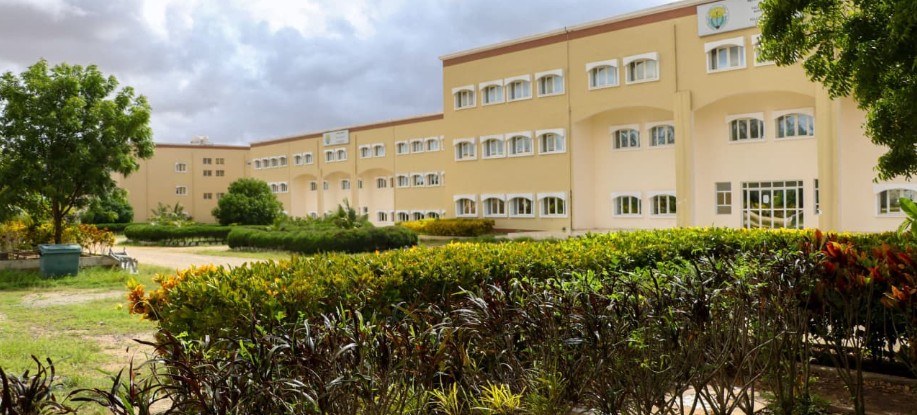Court of Appeal upholds SRC decision to deny MPs extra sitting allowances

Lawyer Peter Wanyama, representing SRC, emphasised the importance of ensuring that public officer salaries remain fiscally sustainable.
The Court of Appeal has ruled that Members of Parliament will not receive additional pay beyond the capped allowances set by the Salaries and Remuneration Commission (SRC) for attending House committee sittings.
Justices Gatembu Kairu, Francis Tuiyott and Jessie Lesiit dismissed the Parliamentary Service Commission’s (PSC) case, stating that the issue had already been settled between PSC and SRC and there was no legal basis to challenge the cap.
More To Read
- SRC accused of fuelling turf wars among key public agencies
- Court of Appeal postpones hearing on constitutionality of Health Acts
- Taxpayers could pay Sh15 billion annually for judges’ retirement perks, SRC warns
- Judiciary rolls out staff census in push for data-driven reforms
- Senate probe uncovers unpaid loans by ex-governors, county officials
- Supreme Court to begin year-end recess on December 21
PSC had contested the SRC’s directive, arguing that the salary agency acted beyond its legal mandate by limiting lawmakers’ earnings from committee sittings.
The commission claimed that while the SRC could determine the amount payable per sitting, it had no authority to restrict the number of sittings per month. The PSC further protested that the cap came after the abolishment of a monthly accommodation allowance of Sh250,000, significantly affecting MPs’ overall earnings.
According to court documents, SRC set the maximum monthly allowances for committee chairpersons at Sh240,000, vice-chairpersons at Sh192,000, and committee members at Sh120,000. MPs earn Sh7,500 per sitting, while chairpersons and vice-chairpersons receive Sh15,000 and Sh12,000 per sitting, respectively.
Represented by lawyer Tom Ojienda, the PSC argued that restricting the number of sittings was an overreach by the SRC and a violation of parliamentary independence. However, the judges ruled that the matter had already been resolved through an agreement between the two state bodies, and there was no existing controversy requiring their intervention.
The dispute began when the SRC abolished the Sh250,000 house allowance previously enjoyed by MPs. The matter escalated to the Court of Appeal in December 2020 after the High Court declared the allowance illegal and ordered PSC to recover the funds within a year.
“We are of the view that the PSC’s fate was sealed when it engaged the SRC and compromised on remuneration and salaries. The appellants submitted to the mandate of the SRC and have abided by its directives. They cannot reopen the issue of the number of sittings and allowances payable before us in this appeal,” the judges ruled while dismissing the case.
The court noted that the gazette notice resulting from the SRC-PSC agreement did not limit the number of committee sittings but rather capped the amount MPs could earn from those sittings. This means lawmakers can attend as many committee meetings as necessary but cannot exceed the prescribed maximum allowance.
Agreement on salary reviews
The judges further observed that pending the appeal’s determination, PSC and SRC had reached an agreement on salary reviews, formalised through a gazette notice on August 9, 2023, titled ‘Remuneration and Benefits for State Officers in the Senate and National Assembly’.
PSC also complied with the High Court order mandating the recovery of all previously paid house allowances within the set timeframe.
SRC, backed by rights advocacy groups such as Katiba Institute, maintained that setting payable allowances and capping the number of remunerable sittings fell within its constitutional mandate under Articles 234 and 235 of the Constitution.
Lawyer Peter Wanyama, representing SRC, emphasised the importance of ensuring that public officer salaries remain fiscally sustainable.
“Kenya does not have bottomless public coffers. SRC exists to regulate remuneration and benefits for state officers, including MPs, and it acted within its constitutional and statutory mandate when it set the salaries and allowances,” he argued.
He further criticised PSC’s position, stating, “The appellants seem to base their argument on parliamentary sovereignty, suggesting that Parliament can decide on remuneration without regard to constitutional provisions.”
His sentiments were echoed by Katiba Institute’s lawyer, Dudley Ochiel, who insisted that MPs were already well-compensated.
“When SRC permits additional allowances, they should not exceed the basic salary. Kenyans specifically called for a Salaries and Remuneration Commission to regulate lawmakers’ pay. What SRC caps is not the number of sittings but the number of payable sittings, which serves a constitutional purpose,” he said.
With the ruling, MPs will have to adhere to SRC’s directive, ensuring that their committee sitting allowances remain within the prescribed limits.
Top Stories Today














































